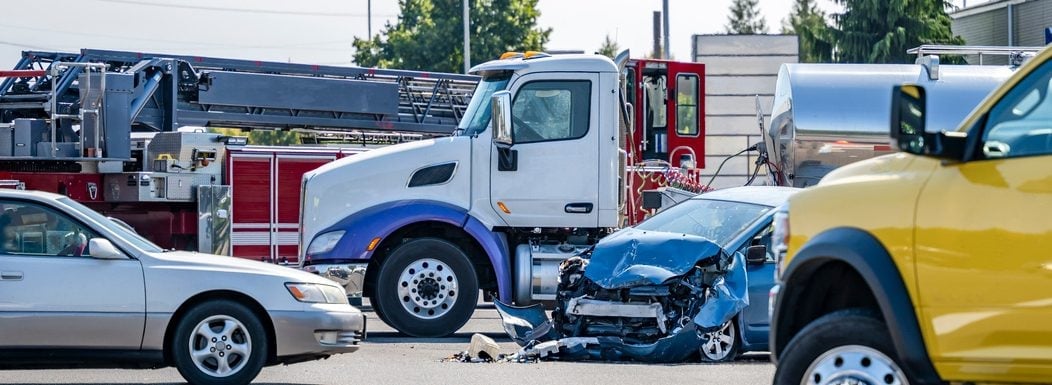Post-Accident Testing & The Clearinghouse: The Implications of an Unauthorized Test

- When it results in a human fatality, whether or not a citation is issued to the driver.
- When an accident results in bodily injury to a party with immediate medical treatment away from the scene AND if a citation is issued to the driver.
- When a vehicle involved in the accident sustains disabling damage requiring towing AND a citation is issued to the driver.
When testing is mandated under any of the above circumstances, it must be done as soon as possible to remain DOT compliant. These tests should also only be conducted within specified time frames; alcohol testing must be administered within 8 hours following the accident, while the time frame for drug testing is 32 hours.
Testing Not Required
As an added safety precaution, it might be tempting to order driver testing after an accident even if it is not required under the regulations. After all, the trucking profession is a safety-sensitive one. One such circumstance might be that your driver is involved in an incident in which the other vehicle sustains extensive damage, though the driver does not receive a citation. However, even though your goal as an operator is to try to mitigate risks by keeping both your employees and other drivers on the road safe, going above and beyond the testing requirements is not recommended. In fact, post-accident testing is prohibited by the regulations unless the circumstances, outlined above, specifically warrant it.
Should you arrange for drug and alcohol testing when it is not mandated, you are opening yourself—and your driver—up to potentially severe consequences should one of the tests turn out to be positive.
That positive test means that your CMV driver’s violation of the drug and alcohol regulations is legally required to be made part of the federal database, the DOT Clearinghouse. This is true even if post-accident testing was not required. The driver’s results will be a part of the DOT Clearinghouse for a five-year period, or whenever they complete the return-to-duty process – whichever is longer. As part of the regulations, the driver is prohibited from operating a CMV for your company or for any employer until he or she completes a return to duty program with an assigned substance abuse professional, a time-consuming effort. The driver will also be subject to follow-up testing.
Federal regulations make it clear that post-accident testing is limited to the above-referenced circumstances only. Though most states allow for mandatory drug testing under the appropriate circumstances, unauthorized drug testing has been found to be in violation of employee privacy rights in some cases, though it is presumed to be lawful unless there is a specific federal (or state) law prohibiting it; these laws are evolving.
In Connecticut, for example, an employer who violates a drug testing law can be liable for damages, depending on the circumstance of the wrongful test. Unauthorized testing might trigger a lawsuit.
Distinguish from Reasonable Suspicion
Note that the post-accident testing requirements are separate from drug testing requirements under other circumstances, such as pre-employment, return-to-work, or reasonable suspicion. Even if you might suspect that a driver was under the influence at the time of an accident, reasonable suspicion testing is not warranted. Reasonable suspicion drug testing only kicks in if a driver’s supervisor observes the driver behaving in such a manner that he or she reasonably could link that behavior to potential intoxication, such as observations in speech, physical demeanor, even smell. But out on the road, without an employer witness to suspicious behavior preceding an accident, there is no grounds for post-accident testing unless the regulatory requirements are otherwise met.
Bottom Line
An accident in and of itself, while unfortunate, does not automatically give rise to the presumption that drugs or alcohol were involved. Familiarize yourself with the post-accident testing requirements, as they only come into play under very specific circumstances. Going above and beyond, while usually something for which to strive in a job, is not warranted in this situation. For any additional questions or clarifications about post-accident testing, Foley is available to help.
Related Articles
A Review of NYS Marijuana Drug Testing Laws
DOT Drug Testing Trends That All Fleet Managers Should Be Aware Of
How to Manage Your Drug & Alcohol Testing Recordkeeping Requirements
.png)



![[New Webinar] A Year of Clearinghouse Violations & Enforcement](https://www.foleyservices.com/hubfs/Imported_Blog_Media/b451167d-ca97-43fb-8b09-51abd40e1b78-3-1-1.png)

